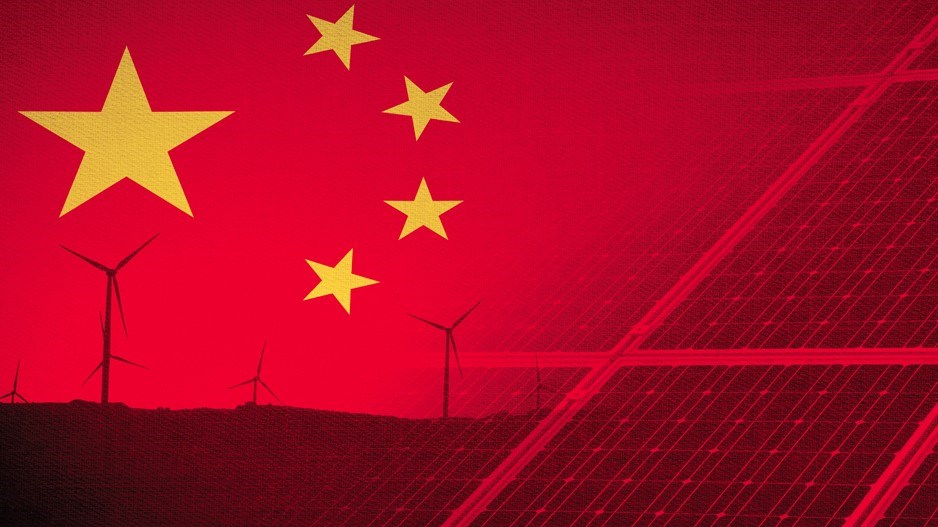After making perhaps the biggest announcement on fighting climate change globally last year by committing to net-zero greenhouse gas emissions by 2060, China’s lack of visibility at the COP26 summit has drawn disappointment – and criticism.
But Canadian experts said China’s performance at COP26 in Glasgow, Scotland – including Chinese leader Xi Jinping’s decision to skip the summit in favour of a video address – reflect more on another harsh reality in China: the country’s zero-COVID policy, which has practically ended international travel to the world’s second-largest economy while erecting numerous barriers to global trade and manufacturing supply chains.
Yves Tiberghien, professor of political science at the University of British Columbia and director emeritus of the school’s Institute of Asian Research, said China’s policy – which heavily restricts even the travel of Chinese citizens back to China after trips abroad – makes it logistically and politically difficult for a Chinese leader to travel internationally, when most Chinese citizens cannot do the same.
Tiberghien added that he doesn’t see Xi’s lack of presence at COP26 making a big difference there, because the Chinese leader has empowered chief climate envoy, Xie Zhenhua, to act in China’s interest at the summit.
“So in the end, what matters is to have the top negotiators of each major country present and for those negotiators to have complete mandate of their leaders,” Tiberghien said. “In the case of China, Xie Zhenhua being there and there being a video address by Xi Jinping beforehand, that completely empowered that team on the ground [in Glasgow]. And that’s what’s important.”
Among the most vocal critics of China’s low profile at COP26 has been former U.S. president Barack Obama. He criticized both Beijing and Moscow (Russian leader Vladimir Putin also skipped the summit) for “a dangerous lack of urgency and willingness to maintain the status quo on the part of those governments.”
Tiberghien agreed that Xi’s presence might have created more conversation on the summit’s sidelines.
But he also noted the example of COP21 in 2015 – where the Paris Accord was signed.
“The leaders came early, they all made grand speeches, and then they all left,” Tiberghien said. “All the final negotiations happened at one level below, and those were the ones really pushing the conversation into the Paris Agreement.”
China currently has one of the most stringent international travel policies related to fighting COVID.
According to Chinese officials, the country currently admits only three types of foreign citizens:
•those with a Chinese residence permit;
•those belonging to the diplomatic/service/courtesy/flight-or-ship crew class; or
•those with a new Chinese visa for either work or emergency humanitarian needs.
All arrivals in China– regardless of vaccination status – are quarantined alone in a hotel/centre at the port of entry for 14 days.
After that 14-day period, new arrivals are allowed to leave the quarantine hotel, but are then subjected to another seven-day home quarantine at their final destination city, where they are closely monitored and restricted in where they can go.
Graham Shantz, president of the Canada China Business Council, said such a stringent quarantine policy has presented challenges to politicians travelling and created challenging conditions for business officials to conduct face-to-face business in China.
“Is it impossible to run the business now? No, it’s not impossible. But it is very difficult for those who are very active and established in China. For companies that see opportunities there, it would be very difficult to develop that relationship, open up the market and take advantage of those opportunities right now.”
But Shantz noted that he does not question Beijing’s dedication to policies fighting climate change. He said China’s power shortage, which has been created by a number of factors, including a shortage of coal, means that the leadership can see firsthand the benefits of shifting to alternative fuels like liquefied natural gas, wind, solar and nuclear.
That, he said, is where Canadian businesses should look to capitalize.
“The ability is there in the next 20 to 30 years for Canada to help China reduce the use of coal in their energy mix. I don’t have to tell you in B.C. that, once the LNG Canada project is up and going, it gives an opportunity for Asian purchasers, including China, to buy into an alternate energy supply chain through the North Pacific – something that does not exist today.”
Shantz added that China’s manufacturing capabilities will be crucial in Canada’s fight to meet its 2050 net-zero carbon emissions deadline, because there may be opportunities to engage Chinese manufacturers on products like wind turbines and solar panels. •




